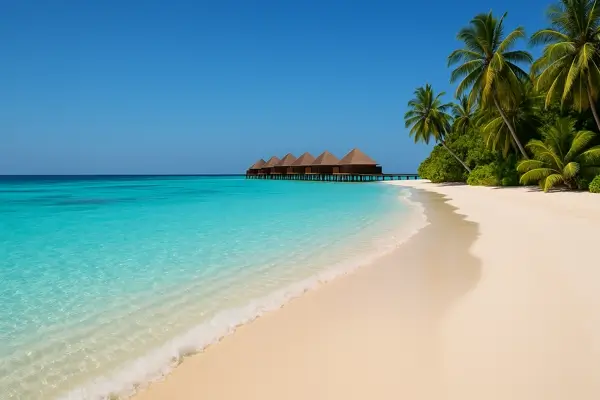
An Archipelago of Coral Islands – The Maldives is an island nation composed of over 1,200 islands, grouped into 26 coral atolls, making it one of the largest coral systems in the world.
The Lowest Country on Earth – The Maldives is the lowest country in the world, with an average elevation of just 1.5 meters above sea level, making it highly vulnerable to sea-level rise due to climate change.
World-Class Diving and Snorkeling – Known for its vibrant coral reefs and diverse marine life, the Maldives is a top destination for scuba diving and snorkeling, offering opportunities to see turtles, manta rays, and whale sharks.
A Tropical Paradise – The Maldives enjoys a tropical climate, with sunny skies year-round, making it a popular vacation destination for travelers seeking a tropical getaway.
Luxury Resorts on Private Islands – The Maldives is famous for its luxury resorts, many of which are located on private islands, offering an exclusive experience with overwater villas and personal butler services.
Home to Unique Wildlife – The Maldives is home to unique species such as the Maldivian flying fox, reef sharks, and the hawksbill turtle, with several species being protected under conservation efforts.
The Maldives’ Currency – The official currency of the Maldives is the Maldivian rufiyaa (MVR), though US dollars are widely accepted in most resorts and businesses.
Islamic State – The Maldives is an Islamic country, and Islam is the official religion. The country adheres to Sharia law, and public practices of other religions are not permitted.
Famous for its Overwater Bungalows – The Maldives is known for its overwater bungalows, offering the ultimate luxury experience, with direct access to the clear blue ocean right from your room.
Environmental Sustainability Efforts – The Maldives is actively involved in sustainability initiatives to protect its environment, including coral reef restoration, eco-friendly resorts, and efforts to combat climate change and ocean pollution.
